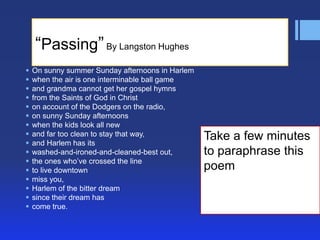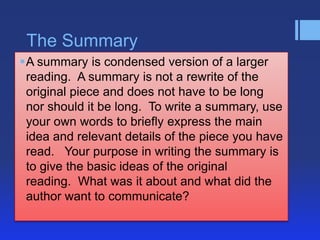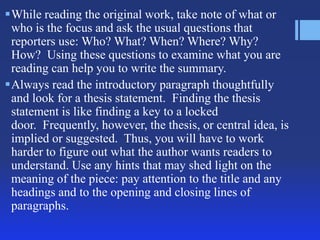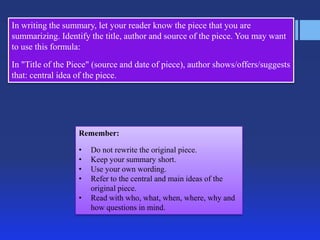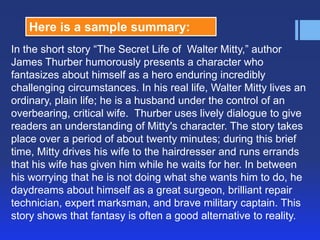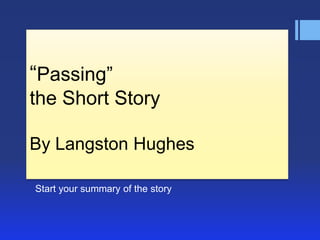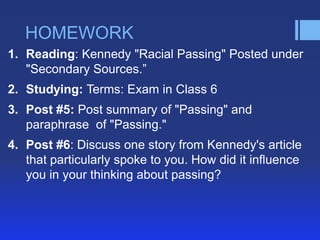The document outlines the agenda for Class 4 of EWRT 1B. It includes a presentation on literary terms, forming discussion teams and earning points, a lecture on author Langston Hughes, and a QHQ discussion on the concept of "passing" and analyses of related works. Students will learn how to write a summary and paraphrase poetry through a lecture. They will then practice these skills through an in-class writing assignment. The document also defines several literary terms that will be covered on the next exam.
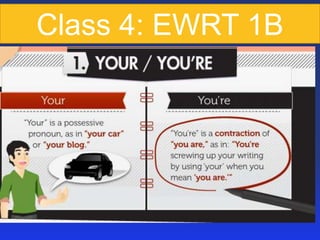
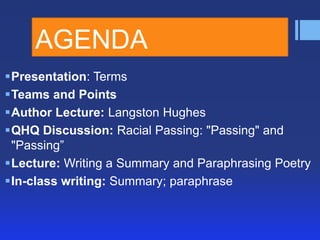
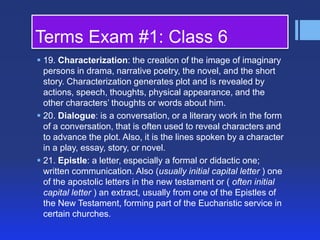
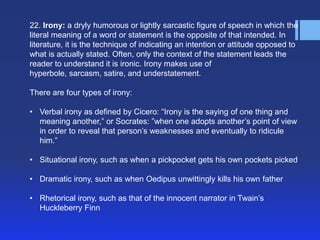
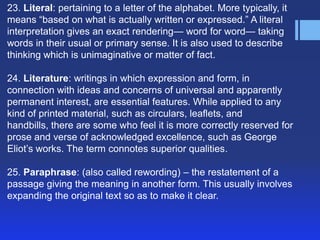
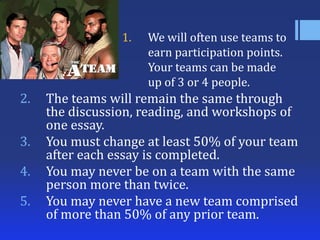
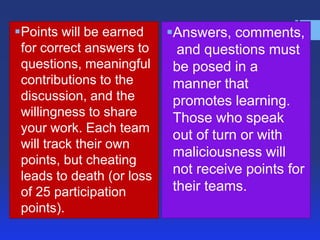
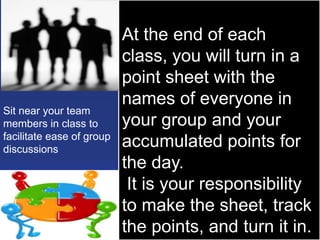
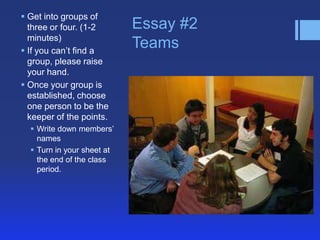
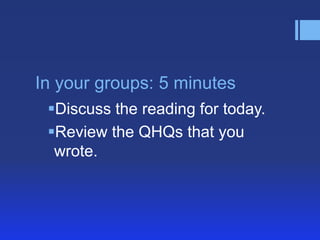
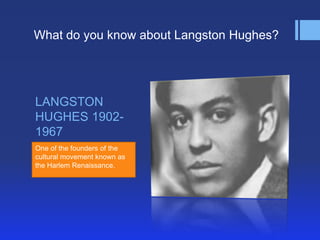
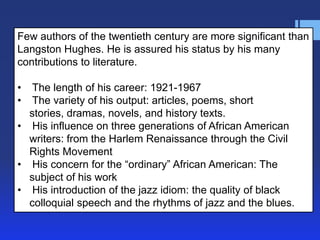
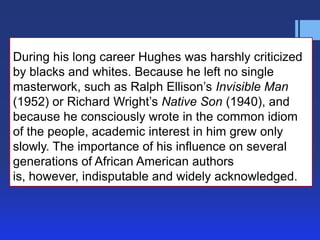
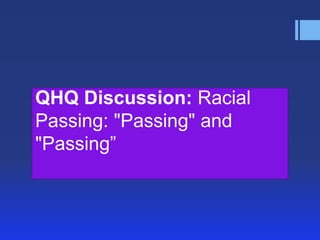
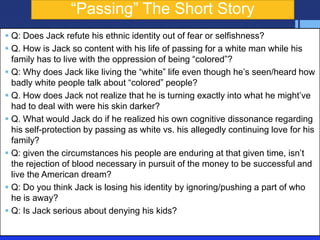
![Q: If Jack were to see a Black person being discriminated against or
mistreated, would he take action or just stand by and watch since he is
―passing‖ as white?
Q. Why does jack put up with the degrading remarks he heres from the
people he is trying to fit in with?
Q: Would Jack mind being black since he does not mind passing as
being white?
Q Why is Jack constantly trying to find an excuse for last night when
he saw his mother and ignored her?
Q: Has Jack ever thought about making a change by voicing out his
opinions on the topic of racism?
Q: Does Jack even feel anger or sadness when it comes to the
prejudice that black people face?
Q] Is Jack really sorry for his family?
Q) Why does Jack starts off saying that he felt like a dog in his first
sentence of the letter?
Q: Is Jack really free?](https://image.slidesharecdn.com/1bclass4-130417094803-phpapp01/85/1-b-class-4-16-320.jpg)
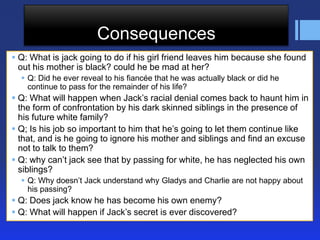
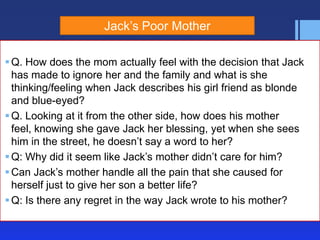
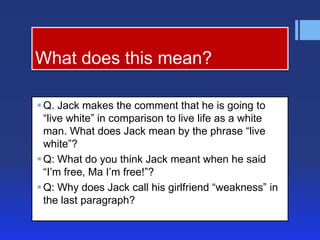
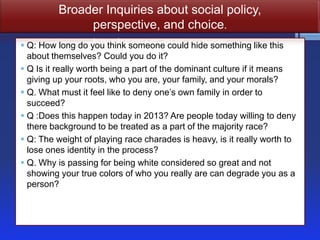
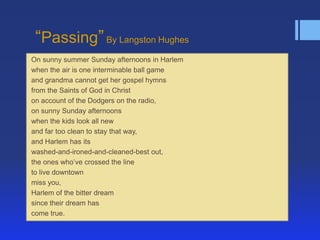
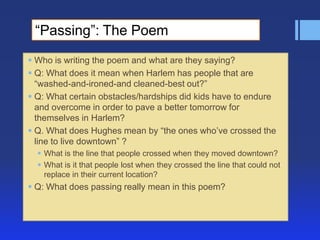
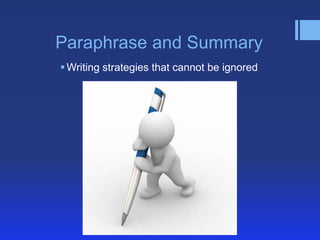
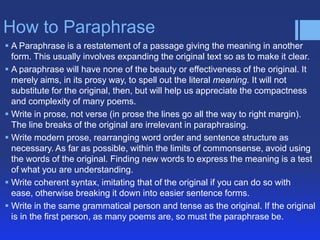
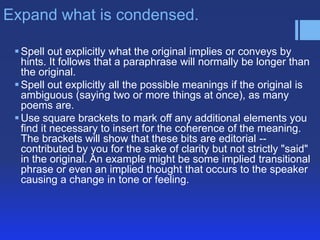
![I, Too, Sing America Paraphrased Text
by Langston Hughes
I, too, sing America. I am an American.
I am the darker brother.
They send me to eat in the kitchen Although the color of my skin may be
When company comes, different from yours, I am like the rest of
But I laugh, my fellowmen. Now I am separated from
And eat well, whites, but I [and my people] are gaining
And grow strong. strength.
Tomorrow,
I'll be at the table Soon, I [we] will join the rest of
When company comes. America, and my [our] rights will assure us
Nobody'll dare that we are not excluded from the fruits of
Say to me, the country.
"Eat in the kitchen,"
Then.
My darker complexion makes me no less
beautiful than everybody else, which should
Besides,
make whites feel sorry for treating me like
They'll see how beautiful I am
And be ashamed-- less than the average individual.
I, too, am America. I am like the rest of you.](https://image.slidesharecdn.com/1bclass4-130417094803-phpapp01/85/1-b-class-4-26-320.jpg)
